
views
X
Expert Source
Ni-Cheng Liang, MDBoard Certified Pulmonologist
Expert Interview
This creates a thick mucus that blocks the pancreatic ducts, intestines, and bronchi, causing respiratory infections and digestive problems. This disorder can be diagnosed by doing a blood test, a sweat test, or a lung test, or by getting chest X-rays. If you’re pregnant and genetically prone to this disorder, you can also consider a prenatal test to see if your baby is at risk.
Recognizing the Symptoms of Cystic Fibrosis

Watch for salty sweat in children. Many children with cystic fibrosis will have very salty sweat. You may notice it when you kiss your child. Children with cystic fibrosis may not display all the symptoms of the disorder until they get older or their symptoms may get worse as they age.

Look for respiratory issues like wheezing and a persistent cough. If you have cystic fibrosis, you may experience respiratory issues like wheezing, breathlessness, a persistent cough that results in thick mucus, and lung infections. You may also have recurring issues like pneumonia, bronchitis, or sinus infections. These normally start at a young age.

Notice if you have severe constipation and foul-smelling stools. Cystic fibrosis can cause your digestive system to stop functioning, leading to issues like intestinal blockage, rectal problems, and greasy or foul-smelling stools.

Get tested if you have a genetic predisposition. Some people have a defective gene that can increase their risk of developing cystic fibrosis. If cystic fibrosis runs in your family, you should get tested for this disorder. Getting diagnosed early can help make your quality of life better and give you access to effective treatments. Your doctor will suggest doing a blood test to check if you have a defective gene that can be linked to cystic fibrosis.
Doing a Blood Test for Cystic Fibrosis
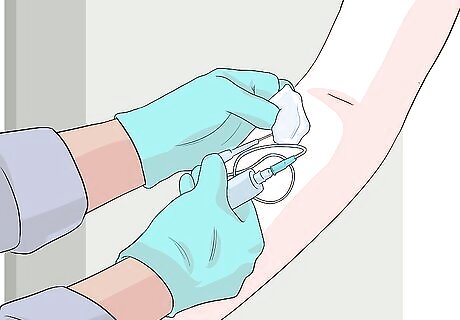
Let your doctor take a blood sample. Newborns and adults can be diagnosed with cystic fibrosis using a sample of blood. Your doctor will prick your finger and take a sample of your blood on a card. If your doctor is testing a newborn, they will take a sample when the baby is 5-8 days old by pricking their foot.

Get the blood sample tested for high levels of immunoreactive trypsinogen. The doctor will look for higher than normal levels of a chemical called immunoreactive trypsinogen (IRT) in your blood. This chemical is released by your pancreas and too much of it can be a sign that your pancreas is not working properly.
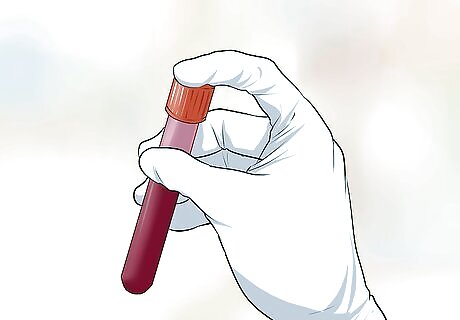
Let your doctor test the blood sample for a defective carrier gene. If you suspect your child may have cystic fibrosis, your doctor will test your blood sample for a defective gene that can cause cystic fibrosis to develop in your offspring. Carriers usually do not develop cystic fibrosis, but they will pass on the faulty gene to their children, putting them at a high risk of developing the disorder. Your doctor may suggest getting a carrier gene test done if you are considering having children or if cystic fibrosis runs in your family.
Getting a Sweat Test for Cystic Fibrosis

Have your doctor perform the sweat test. Your doctor will attach a device with a stimulating chemical and an electrode to your forearm or your thigh. They will then collect sweat on a piece of filter paper or gauze for testing. Newborn babies cannot be tested for cystic fibrosis using a sweat test until they are at least 3-4 weeks old. Do not apply any lotions or creams for 24 hours before the sweat test.
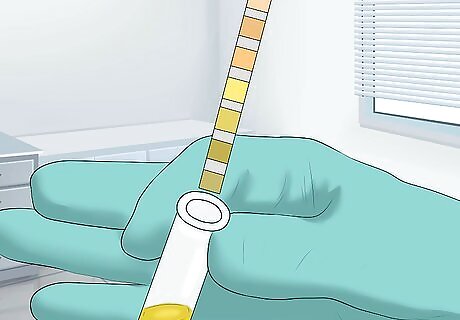
Get your sweat sample tested for a high chloride concentration. If you have a chloride concentration of 60 mmol/L, you likely have cystic fibrosis. Your sweat test may also be marked “abnormal” if your doctor suspects you have cystic fibrosis.
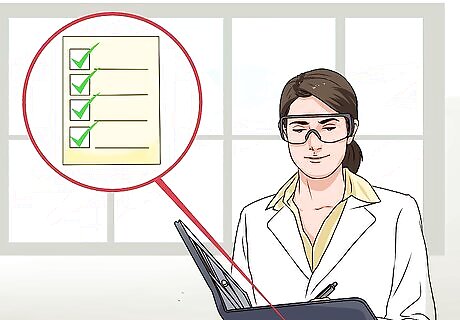
Have the sweat test done twice to confirm the diagnosis. If your sweat sample comes back abnormal, your doctor will perform it again. If your second test results come back abnormal, they will confirm you have cystic fibrosis. If your second test does not come back abnormal, they may perform a blood test or a sweat test to confirm your diagnosis.
Having a Prenatal Test for Cystic Fibrosis
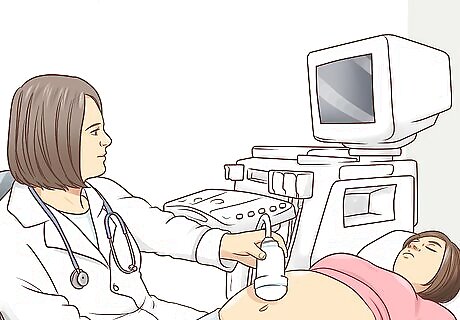
Consider a prenatal test if you are pregnant and genetically prone to cystic fibrosis. Your doctor may recommend that you do a prenatal screening for cystic fibrosis if the disorder runs in your family or if you are a carrier of the defective gene that causes it. The test is usually very accurate and can tell you if your baby’s genes are normal or if they are at risk of developing cystic fibrosis. However, taking this test is a very personal decision that you should discuss carefully with your doctor and your significant other, if they’re involved. Talk about the pros and cons with your doctor and educate yourself before you decide to have a test done.

Consider allowing your doctor to remove fluid from your amniotic sac. Your doctor will put a needle into your abdominal wall and then into your uterus. They will extract a small amount of fluid from the amniotic sac, which is the sac that is around your baby. This test can be done at your doctor’s office and should not be painful for you.
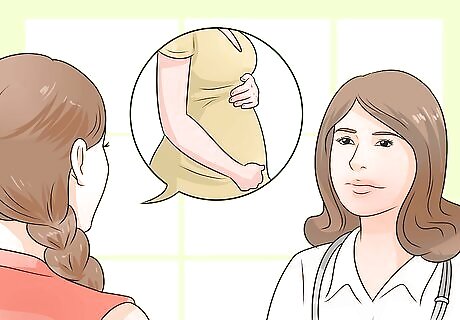
Talk with your doctor about taking a sample of your placenta. Another prenatal test involves the doctor threading a thin tube into your vagina and cervix until it reaches the placenta. They will then suck out a sample of the placenta for testing. The suction used will be gentle and should not be painful or uncomfortable for you.
Getting a Chest X-Ray and Sputum Test

Allow your doctor to X-ray your chest. Chest X-rays can help your doctor see if there are areas of your lungs that are inflamed or scarred. They can also look for any signs of trapped air in your lungs. These are all possible signs of cystic fibrosis.
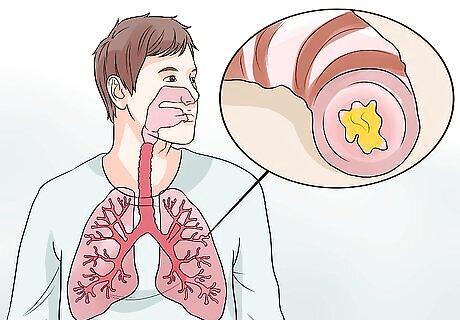
Perform lung functioning tests. Your doctor may have you perform pulmonary function tests, which measure your lung’s ability to exchange oxygen and carbon dioxide correctly. You will need to breathe into a special machine to perform these tests.
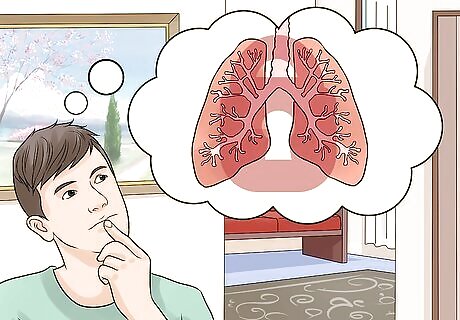
Get tests done on a sample of fluid in your lungs. Your doctor may do a sputum culture test, which tests the fluid that you cough up from your lungs. They may suggest this test if you are having lung issues or you are already displaying symptoms of cystic fibrosis.

















Comments
0 comment